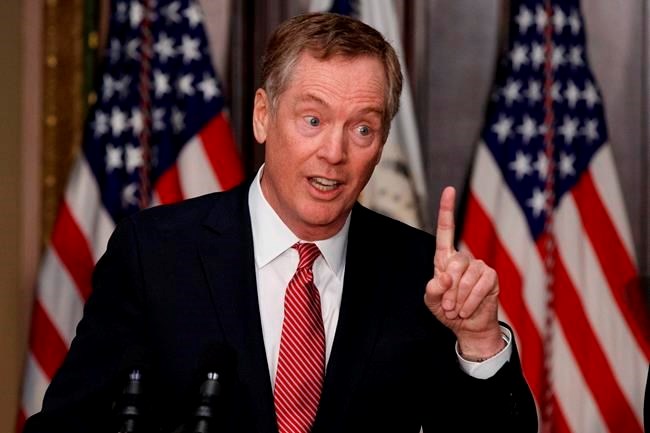 The B.C. government issued routine notice Wednesday it’s seeking input from around B.C. before setting the provincial priorities at upcoming North American Free Trade Agreement renegotiations.
The B.C. government issued routine notice Wednesday it’s seeking input from around B.C. before setting the provincial priorities at upcoming North American Free Trade Agreement renegotiations.
It might want to include some discussion of whether the B.C.-only restriction on wine sold in grocery stores is worth all the trouble it seems to be creating.
The volume of trade between Canada and the U.S. is so mammoth that when talks begin this month you’d think the focus would be on multibillion-dollar industries. But B.C.’s ban on including foreign wines in the grocery-store wine sections it allowed to open last year seems to be getting an inordinate amount of attention.
U.S. wineries sell millions of dollars worth of wine at government and private liquor stores. The new grocery outlets are one of the few channels to which they don’t have access. And only 21 grocery stores are selling wine. The U.S. is shut out of a tiny sliver of the B.C. market.
But senior U.S. officials have taken official notice of the restriction and cited it as an example of problems with NAFTA they want rectified. This is not what the B.C. Liberals envisioned when they dismissed the complaints this year. Then-cabinet minister Shirley Bond said in January that B.C. was confident it was complying with international trade obligations.
After a World Trade Organization challenge was mounted against the restriction, she said the framework for grocery-store sales was flexible and unique and reflected B.C.’s price in its product, and the public desire for choice and convenience. B.C. was braced to support the industry and defend the challenge, she said in a statement.
The government also stressed how much access the U.S. already has to B.C. wine drinkers. The number of liquor stores selling imported wine has tripled over the past 30 years, from 334 to about 1,100.
Most recent quarterly sales statistics show B.C. drinkers bought $255 million worth of wine, $117 million of it from B.C. (in whole or in part) and $30 million from the U.S. The rest was from all over the world.
B.C.’s position in January was that NAFTA allows for private wine outlets that sell only B.C. wine, “and we are confident in the approach we have taken.”
A number of industry experts weren’t so sure. Some were pessimistic about B.C.’s chances at the WTO.
The pressure is still on, judging by U.S. Trade Representative Robert Lighthizer’s comments to a House committee two months ago. Initial WTO consultations resolved nothing, he said.
The next step is to go to a dispute settlement panel in Geneva, or include the issue in NAFTA talks. He termed the B.C. grocery-store ban a “major extraordinary problem for those people who are affected and there is no justification for it.”
The WTO challenge was filed just days before the U.S. change of government. It said B.C. was having an adverse impact on U.S. wine producers and offered a substantial competitive advantage for B.C. wineries. It also noted that the Obama administration had filed 25 previous WTO enforcement actions and won all of them.
It’s an international dispute, so the federal government is handling the arguments. But B.C.’s stand will inform Ottawa’s position, and the change of government in B.C. could change the positioning it recommends to Ottawa.
Attorney General David Eby was the critic for liquor policy and predicted B.C. was going to lose big.
“We know what the trade obligations are going to result in, which is the opening of the grocery-store shelves,” he told the house last year. “That will be, initially, all B.C. products. Then it will be all products. So if it’s all wine products, then it will be international wine products as well, because it is very difficult to justify, under trade obligations, anything else.”
When the softwood lumber dispute is added to the mix, B.C.’s NDP government will have a tricky time prioritizing what it wants the federal government to go to the wall on, and what it’s prepared to let slide.



